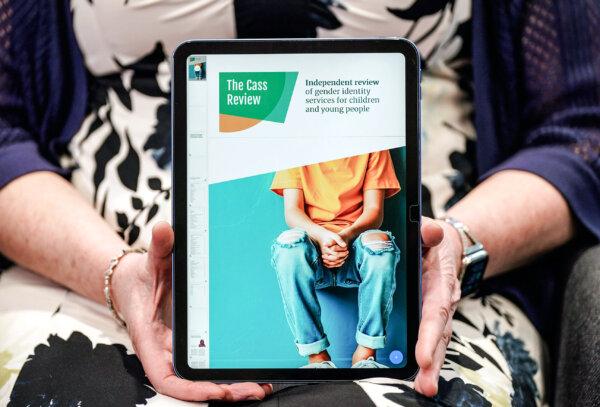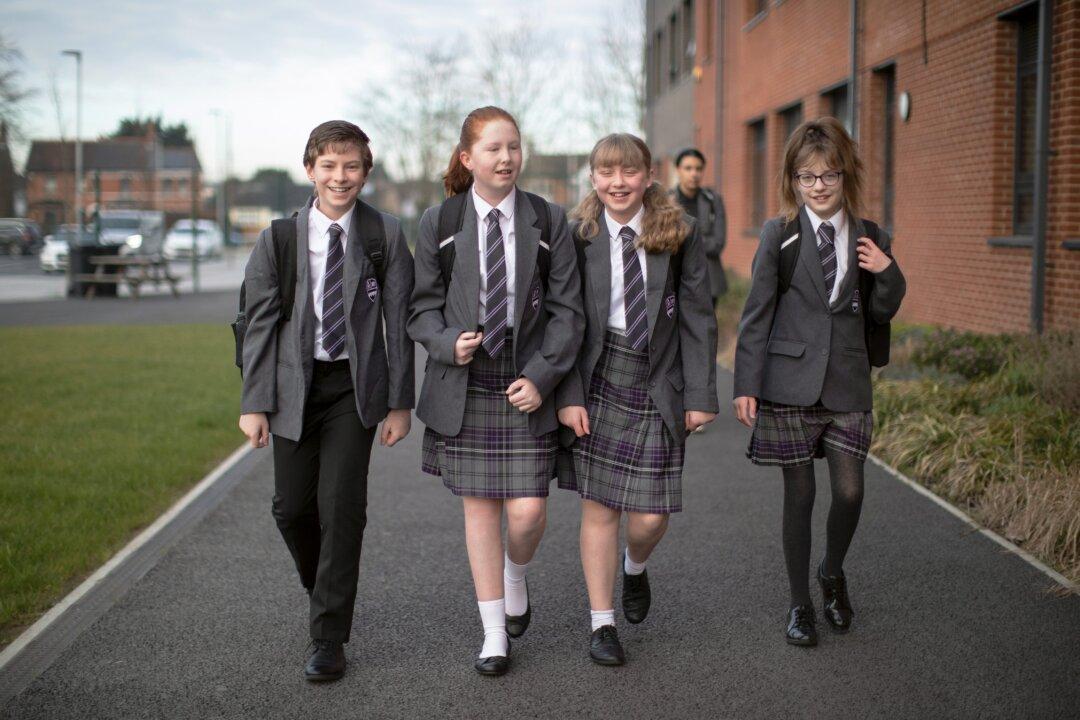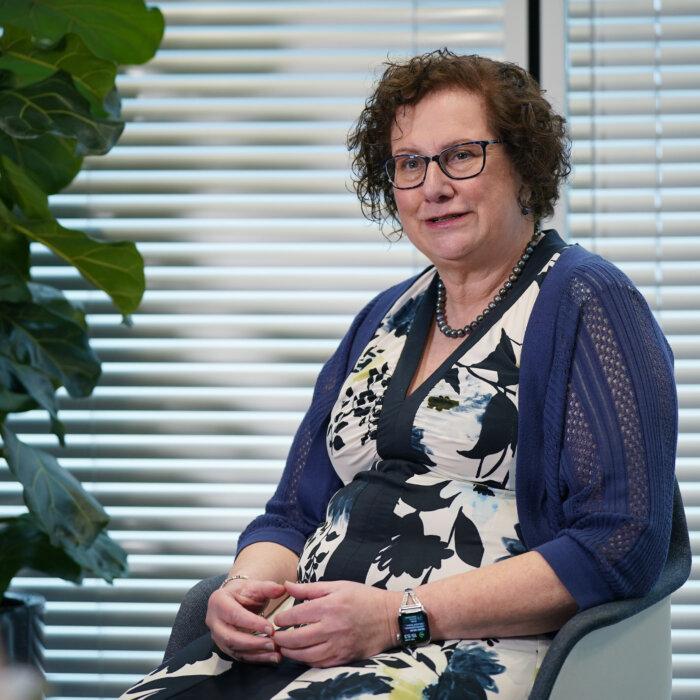New government guidance aimed at protecting children recommends that schools in England should not teach the “contested” subject of gender ideology.
No sex education should be given to children at all before year 5, when they are 9 or 10 years old, the guidelines published on Thursday state.
Parents will be given the right to see resources used to teach their children Relationships, Sex, and Health Education (RSHE) lessons, following what the Department for Education described as “multiple reports of disturbing materials” being used for this subject.
The government plans to make the guidelines statutory following a public consultation, meaning schools will be expected to follow them, although with a general election due this year, a Labour administration might scrap them. The current status is that schools must have “a good reason” for not adhering to them.
‘A Purely Scientific Standpoint’
Any sex education given in primary schools for years 5 and 6 must be taught “from a purely scientific standpoint,” focusing on conception and birth, the draft guidelines say.Following a review into RSHE, the publication of the guidelines was brought forward in light of the Cass Review into “gender care” for children, which laid bare the inappropriate pathways young people have been put on after they said they were experiencing feelings of gender dysphoria.
The guidance says that once at secondary school, pupils should be taught about legally “protected” characteristics, such as sexual orientation and gender reassignment, but makes clear that schools should not teach that gender identity or gender ideology are factual concepts.
Gender ideology is the belief that a person can be “born in the wrong body,” and includes the notion that transgenderism is based on something physical rather than classing it as a mental health disorder. The ideology also promotes the notion that a person can be “non-binary” instead of the biological reality of there being two sexes.
A statement from the Department for Education, published alongside the guidelines, said: “In light of the Cass Review, it is important that schools take a cautious approach to teaching about this sensitive topic, and do not use any materials that present contested views as fact, including the view that gender is a spectrum.
Sunak ‘Horrified’
Prime Minister Rishi Sunak said in the statement: “Parents rightly trust that when they send their children to school, they are kept safe and will not be exposed to disturbing content that is inappropriate for their age. That’s why I was horrified to hear reports of this happening in our classrooms last year.”Education Secretary Gillian Keegan said in the forward to the guidelines that while sex education is vital to ensure that young people get “the right information at the right time, so that they know about the risks and how to avoid them,” it was also important to ensure that “they are not exposed to too much too soon, taking away the innocence of childhood.”
“That is why this updated guidance includes clear age limits for the teaching of the most sensitive content and specifies that the contested topic of gender identity should not be taught.”
Helen Joyce, director of advocacy at the charity Sex Matters, said in an emailed statement that she “strongly welcomes” the change in approach, which she said “responds to widespread concern about the age-inappropriate and unscientific content pushed into PSHE [personal, social, health, and economic education] lessons by trans lobby groups.”
“Greater consistency and clarity are needed to ensure that all children are taught accurately and sensitively about sex, relationships and their own physical development, at the same time as being properly safeguarded.”
“This is part of a long-overdue package of government measures aimed at rooting harmful and evidence-free transgender ideology out of schools.”
Access Wrongly Denied to Parents
Parents have been refused access to the materials being used to teach their children RSE, with schools incorrectly citing copyright restrictions as the reason. But the new guidance makes clear that schools should make materials available to parents and clarifies that this is not an infringement of copyright law.The guidance includes additional content on suicide prevention in the secondary health and well-being section, aimed at equipping pupils to recognise when they or their peers need help.

The guidance includes a section on sexual harassment and sexual violence, covering specific types of abusive behaviour, such as stalking, grooming, and revenge porn as well as advice for teachers on how to address what it refers to as “misogynistic online influencers.”
While the risks of inappropriate online content such as pornography can be discussed “in an age-appropriate way” from year 7, the details of sexual acts should not be discussed before year 9, the guidance says.
Concerns Raised By Unions
While the guidance was widely welcomed from parents and campaign groups concerned about the culture of gender ideology, concerns were raised from some charities and within the teaching unions about the age restrictions.The National Association of Head Teachers (NAHT) called on the government to provide evidence which shows that “rigid” age limits will improve the support, protection, and safeguarding of pupils.
The guidelines allow for some flexibility on age limits on the teaching of certain topics if necessary “to respond promptly to issues which pose an imminent safeguarding risk to their pupils,” it states that parents must be informed in advance if something is to be taught earlier than expected.
Paul Whiteman, general secretary at NAHT, said: “We cannot ignore the fact that some children and young people are already accessing information from different sources outside of school. This may lead to questions that need careful handling from trained professionals.”
Labour’s shadow education minister Catherine McKinnell said there was “deep concern about the lack of consultation with school leaders in developing the guidance so far,” and said the age limits were being proposed at “a time of rising levels of sexual offences against children.”
Since September 2020, relationships and sex education has been compulsory in secondary schools in England, while relationships education has been compulsory in primary schools.







